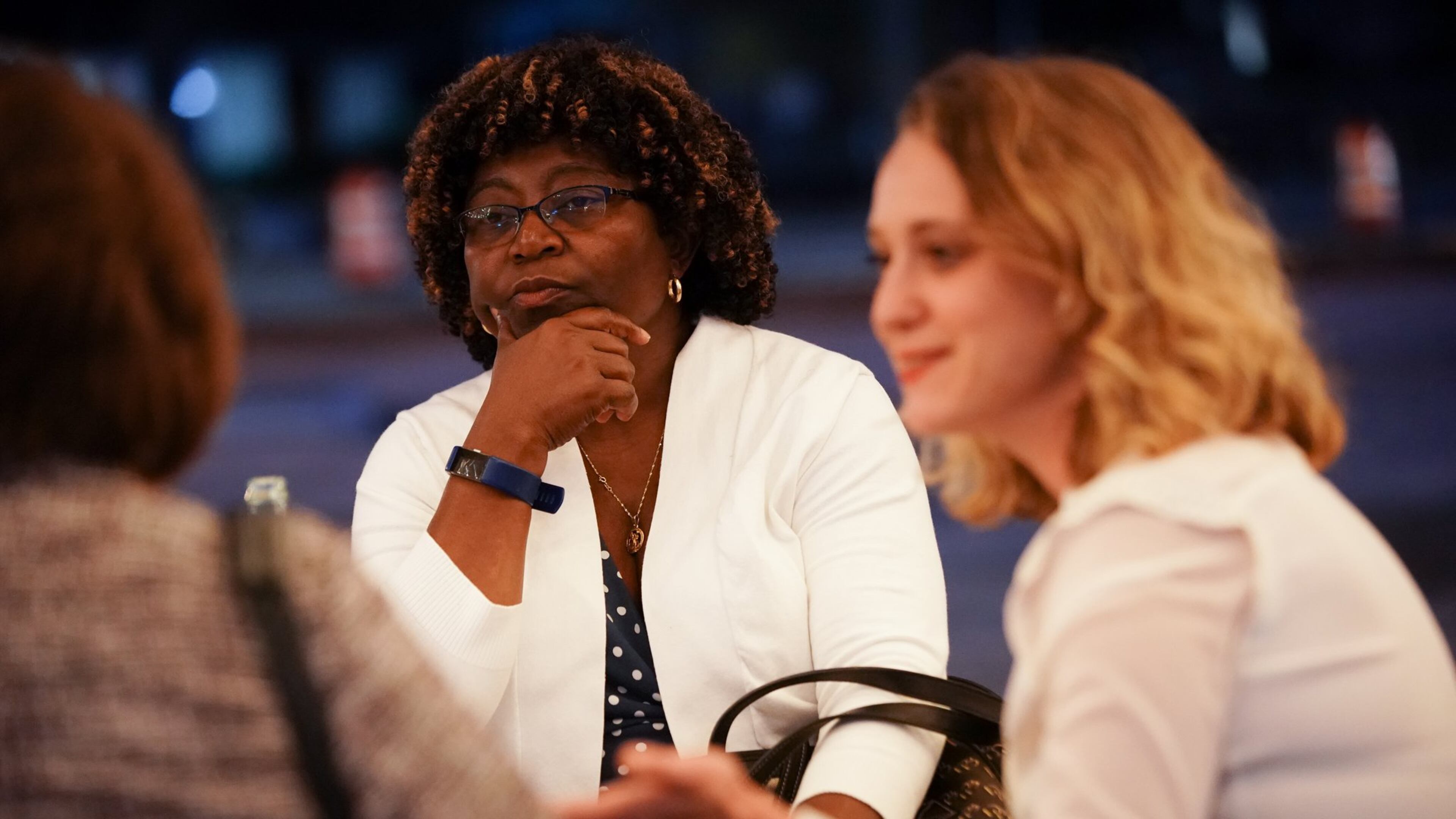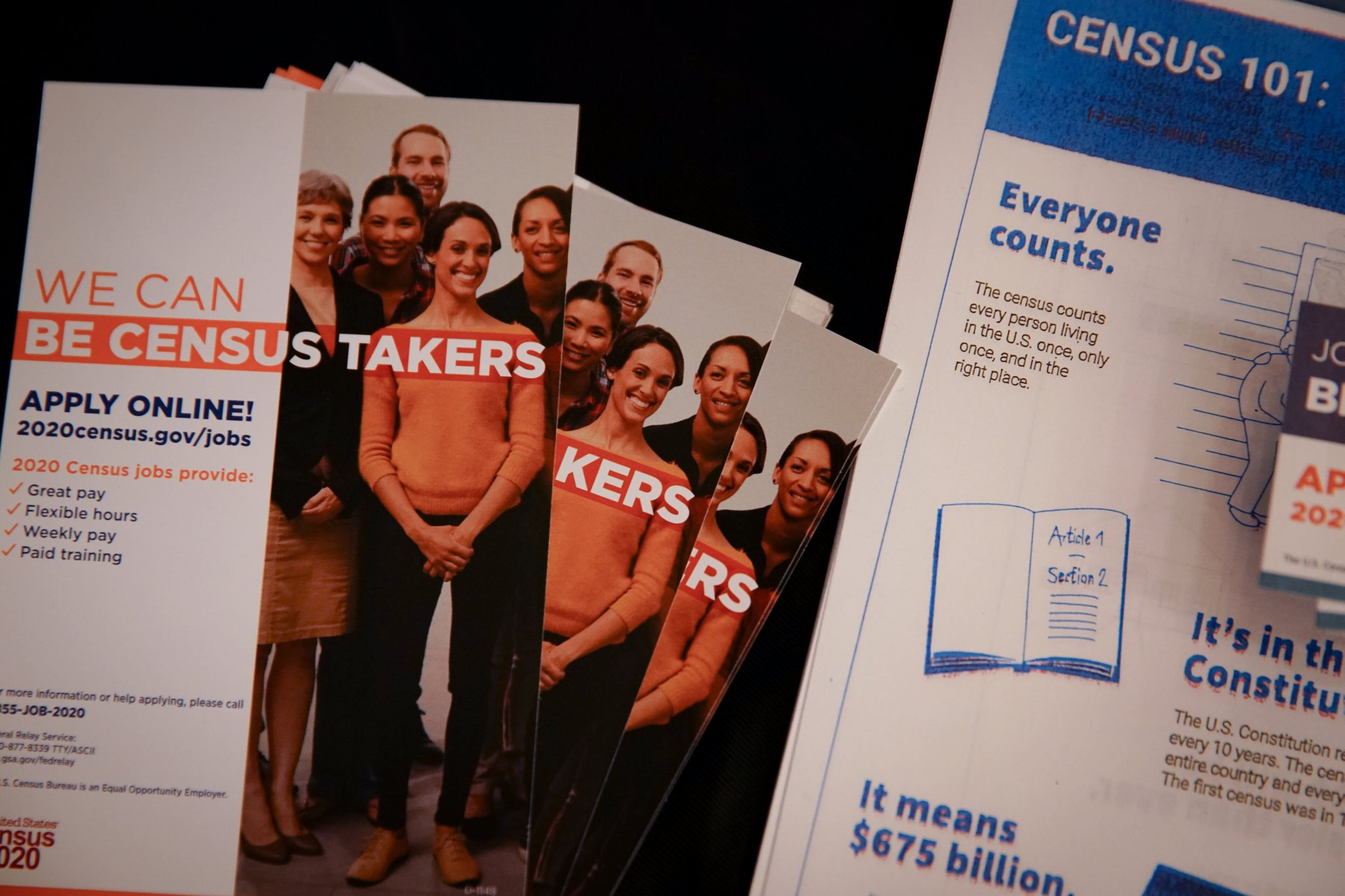In DeKalb, communities diversify efforts to get full 2020 Census count

To the average resident, the 2020 census might seem like a distant thought. After all, National Census Day is April 1, and it’s not even Christmas yet.
But in metro Atlanta communities like Clarkston, neighbors have been organizing for months in preparation for the decennial count of America’s population.
"DeKalb is unique from north, central and south. … This is a unified issue for all of us," said DeKalb County Commissioner Larry Johnson, who is serving as the chair of the county's "Complete Count Committee." "When you look at life situations, you don't think about census as one of the top things you've got to get done. So we've got to consciously stay in front of that."
The population counts are used to determine how billions of federal and state funds are dispersed to communities for schools, road projects and public works. The more people live in a county or state, the more funds that place generally receives.
That’s why officials are eager to make sure their area receives a full count in 2020. Johnson said every person in DeKalb counted on the census is worth $2,300 in funding for the county.

Officials estimate as much as 28% of DeKalb County’s diverse population was not counted on the 2010 census, resulting in the county missing out on up to $275 million in funding.
Half a year before the official count, communities across DeKalb have adopted a variety of strategies to prepare for 2020, soliciting praise from officials with the Census Bureau.
“If we had to give DeKalb County a grade, it would be an A-plus-plus,” Marilyn Stephens, an assistant regional manager for the census, said of the county’s preparation efforts. She cited the dozens of census awareness events that have been hosted by communities, and the committees created within diverse pockets of DeKalb’s population.
In Clarkston, where most of the residents are foreign-born, residents from different countries are working to educate their individual communities about the census. Officials are working with organizations to translate census materials into Spanish to accommodate DeKalb’s vibrant Hispanic communities in North DeKalb. And in Dunwoody, the city is using mapping technology to identify areas that might be unlikely to respond to the census over the internet.
“It’s important … that everyone is counted,” said Dil Rai, a Clarkston resident who came to the U.S. as a refugee from Bhutan in 2015. This will be his first U.S. Census. “That matters, especially in terms of funding.”
On a recent evening, Rai shared pizza and pastries with Clarkston officials and fellow residents, who discussed the latest in the “complete count” effort. He is leading the push to educate and engage members of the Bhutanese community in Clarkston about why the census is legitimate and mandatory. Rai, 48, said many Bhutanese people who came to Clarkston before 2010 did not participate in the last count due to a “lack of understanding” and communication.

Every resident, no matter their citizenship status, is supposed to be counted in the census. But community advocates worry some marginalized populations might be hesistant to provide personal information to the government. The Census Bureau emphasized that responses are confidential, protected by law and only used for counting purposes. The responses also cannot be shared with law enforcement agencies like U.S. Immigration and Customs Enforcement, the census said.
This summer, the U.S. Supreme Court blocked an effort by the Trump administration to ask residents whether they are U.S. citizens during the census. Critics said including the question would cause an undercount of noncitizens and minority groups.
Census workers are not yet knocking on doors and counting residents. But staffers have already canvassed neighborhoods to verify millions of addresses, while the Census Bureau hires temporary workers for next year. Officials also see the next several months as a crucial period for building awareness, especially in communities like Rai's.
“Even now, there are some people who think it’s not necessary,” he said. “Most of them feel that it’s not required. I feel I need to make them understand.”
Veronica Thang, 39, is helping to educate fellow Burmese immigrants about the census by visiting community events and talking with local leaders. She said many might be hesitant to provide personal information and documents to strangers.
“We need to explain to them what the census is before we let them fill out the form,” said Thang, who came to Clarkston as a refugee in 2010.
Organizers with Women Watch Afrika, a social justice organization, have been going door to door in neighborhoods around DeKalb and metro Atlanta to get the word out about the census. Preye Cobham, an attorney who works with the group, said she often gets questions from residents about whether the census matters or is required.
“They get so nervous, they get so worried,” Cobham said.

Census officials said it can be a challenge to get an accurate count of residents who live in apartments, so some committees in DeKalb are pushing to hold meetings in apartment complexes — about 46% of DeKalb’s housing units are occupied by renters, according to the latest census estimates.
Officials across the county are also working to translate educational materials into Spanish, Mandarin and other languages for residents who do not speak English.
For the first time, the census will allow residents to respond online in 2020. While this could make it easier for residents who aren’t fans of traditional snail mail, Census Bureau officials acknowledge it won’t guarantee a full count. More than 10% of DeKalb households do not have regular broadband internet access, according to census estimates.
But statistics and mapping could help address those pitfalls.
Andy Summers works for the city of Dunwoody overseeing mapping and data applications. Earlier this fall, he created a map that predicts the internet response rate for every neighborhood in metro Atlanta. He used seven existing criteria — including access to a computer, the internet, a smartphone or a landline — to create a “technology access score” for each community. The map also shows the mail response rate from the 2010 Census.
Summers said census committees could use the data to “focus your efforts on those areas that are predicted or proven to be harder to count.” According to Summers’ calculations, the area in DeKalb with the lowest access to technology is the neighborhood near Shoal Creek Park, between Candler Road and Columbia Drive. The southeast corner of DeKalb, in Stonecrest, ranked highest for technological access.
Dunwoody has its own Complete Count Committee, but the map can be used by anyone in metro Atlanta, Summers said.
“Technology might not be as readily available as people think,” he said.
Wouldn’t you like to support our strong journalism? Your subscription helps us cover your communities in a way that no one else can. Visit https://subscribe.ajc.com/hyperlocal or call 404-526-7988 to begin or renew your subscription.
MONTH BY MONTH
Next spring, the U.S. Census Bureau will give residents several chances to respond online or by mail before sending workers to knock on doors:
- March 12-20: Households will get a letter inviting them to take the Census survey online, which is an option for the first time in 2020. Residents can also respond through a paper survey.
- March 16-24: Reminder letters will go out to all households.
- March 26-April 3: Residents that haven't responded will get a reminder postcard.
- April 8-16: Another letter and paper questionnaire will be sent to non-responsive residents.
- April 20-27: Households will get one last postcard reminding them that "it's not too late" to respond to the Census.
- May to July: Census workers will visit addresses that did not respond online or mail back the survey.


